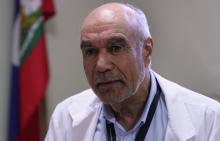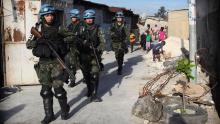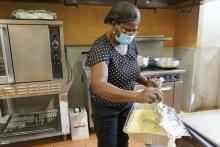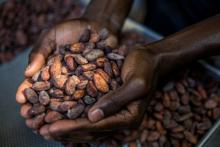Renowned Haitian Expert on Infectious Diseases tapped by WHO for New Science Council
In these increasingly chaotic times it is good to be reminded of the work being done by Haiti's heroes - and Dr. Jean William "Bill" Pape is one of them. Dr. Pape, one of the country's leaders in preventing and responding to infectious diseases, will be one of nine people around the world tapped by the World Health Organisation to provide guidance to its director. It is an honor for him, and honor for Haiti, and a reminder that progress is possible in spite of political instability. You can learn more about his work to date by visiting the GHESKIO website and the full article by Miami Herald journalist Jacqueline Charles follows.












